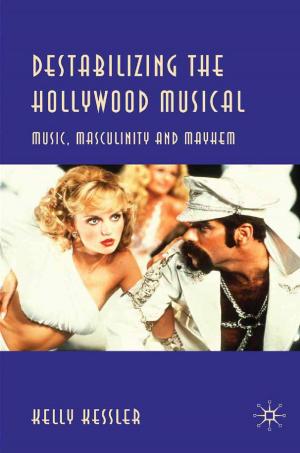Lessons from the Past?
Memory, Narrativity and Subjectivity
Nonfiction, History, Reference, Historiography, Social & Cultural Studies, Social Science, Anthropology| Author: | Bernhard Forchtner | ISBN: | 9781137483225 |
| Publisher: | Palgrave Macmillan UK | Publication: | November 17, 2016 |
| Imprint: | Palgrave Macmillan | Language: | English |
| Author: | Bernhard Forchtner |
| ISBN: | 9781137483225 |
| Publisher: | Palgrave Macmillan UK |
| Publication: | November 17, 2016 |
| Imprint: | Palgrave Macmillan |
| Language: | English |
This book reconstructs how claims to know ‘the lessons’ from past wrongdoings are made useful in the present. These claims are powerful tools in contemporary debates over who we are, who we want to be and what we should do. Drawing on a wide range of spoken and written texts from Austria, Denmark, Germany and the United States, this book proposes an abstract framework through which such claims can be understood. It does so by conceptualising four rhetorics of learning and how each of them links memories of past wrongdoings to opposition to present and future wrongdoings. Drawing extensively on narrative theory, Lessons from the Past? reconstructs how links between past, present and future can be narrativised, thus helping to understand the subjectivities and feelings that these stories facilitate. The book closes by considering if and how such rhetorics might live up to their promise to know ‘the lessons’ and to enable learning, offering a revised theory of collective learning processes.
This book reconstructs how claims to know ‘the lessons’ from past wrongdoings are made useful in the present. These claims are powerful tools in contemporary debates over who we are, who we want to be and what we should do. Drawing on a wide range of spoken and written texts from Austria, Denmark, Germany and the United States, this book proposes an abstract framework through which such claims can be understood. It does so by conceptualising four rhetorics of learning and how each of them links memories of past wrongdoings to opposition to present and future wrongdoings. Drawing extensively on narrative theory, Lessons from the Past? reconstructs how links between past, present and future can be narrativised, thus helping to understand the subjectivities and feelings that these stories facilitate. The book closes by considering if and how such rhetorics might live up to their promise to know ‘the lessons’ and to enable learning, offering a revised theory of collective learning processes.















